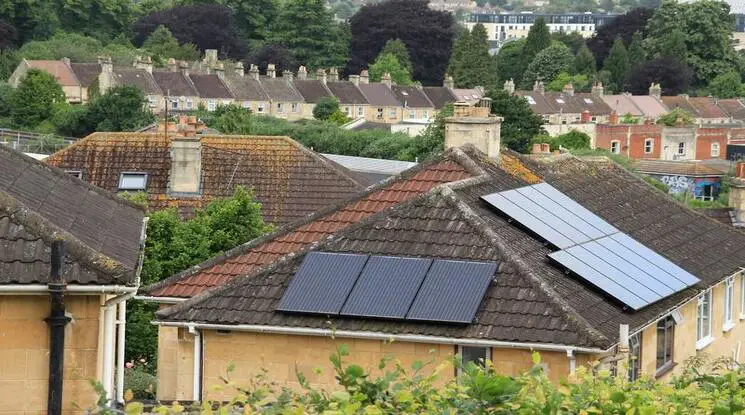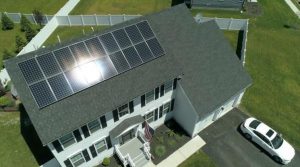When it comes to harnessing the power of the sun to generate clean and renewable energy, not all states in the United States are created equal. In the case of Virginia, it might not be the first state that comes to mind when you think of solar, but it’s making significant strides toward becoming a solar-friendly state. In this blog, we’ll discuss into Virginia beach solar landscape, exploring the reasons it’s gaining recognition as a solar-friendly state and the numerous benefits that come with embracing solar energy.
Virginia’s Solar Energy Landscape
Before we dive into the benefits of solar energy in Virginia, let’s first take a closer look at the state’s solar energy landscape. Historically, Virginia was not considered a solar-friendly state due to various regulatory barriers and a lack of incentives. However, in recent years, the state has seen a substantial shift in its approach to solar energy. Here are some key developments that highlight Virginia’s commitment to solar power:
Solar Investment Tax Credit (ITC)
Virginia introduced a Solar Investment Tax Credit offering homeowners and businesses a tax credit for a portion of their solar installation costs. This incentive has played a significant role in encouraging solar adoption throughout the state.
Net Metering
Net metering allows solar system owners to sell excess energy back to the grid, effectively reducing their energy bills and sometimes even earning them money. Virginia’s net metering policies have improved, making it more attractive for residents to invest in solar panels.
Expanding Solar Capacity
The state has been steadily expanding its solar capacity, with large utility-scale solar farms popping up across Virginia. This expansion has not only increased the availability of solar energy but also created numerous jobs in the renewable energy sector.
Community Solar Programs
Virginia has introduced community solar programs that enable individuals who can’t install solar panels on their property to subscribe to a shared solar farm. This initiative allows more Virginians to access clean energy without the need for rooftop solar installations.
The Benefits of Solar Energy in Virginia
Now that we’ve explored Virginia’s growing solar landscape, let’s delve into the myriad benefits of adopting solar energy in the Old Dominion:
Environmental Benefits
One of the most significant advantages of solar energy is its positive impact on the environment. Solar power generates electricity without emitting harmful greenhouse gases, which contribute to climate change. By harnessing the sun’s energy, Virginia reduces its carbon footprint and contributes to a cleaner, healthier planet.
Energy Independence
Investing in solar energy reduces Virginia’s dependence on fossil fuels and out-of-state energy sources. This enhanced energy independence helps stabilize energy prices and enhances the state’s energy security.
Lower Energy Bills
Solar panels can significantly reduce electricity bills for homeowners and businesses. By generating their own electricity, Virginians can offset their energy costs and, in some cases, even receive credit for excess energy produced.
Job Creation
The expansion of Virginia’s solar capacity has led to job creation in the renewable energy sector. Solar installation, maintenance, and related industries have seen substantial growth, providing employment opportunities for residents.
Increased Property Value
Homes with solar panels are often more attractive to buyers. The investment in solar power can increase the resale value of a property, making it a wise financial decision for homeowners.
Improved Grid Resilience
Distributed solar generation enhances the resilience of the energy grid. By reducing strain on the grid during peak demand times, solar energy can help prevent blackouts and improve overall grid reliability.
Economic Growth
The solar industry contributes to economic growth in Virginia. As more businesses and homeowners embrace solar, the demand for solar-related products and services increases, benefiting the local economy.
Technology Advancements
The growth of the solar industry spurs technological advancements and innovation in the field of renewable energy. This, in turn, leads to more efficient and affordable solar technologies.
R&D Opportunities
Virginia’s investment in solar energy also opens up opportunities for research and development in the renewable energy sector. Universities and research institutions in the state can contribute to advancements in solar technology.
Environmental Stewardship
Supporting solar energy aligns with Virginia’s commitment to environmental stewardship. The state can reduce its ecological footprint and set an example for other regions looking to transition to clean energy sources.
Challenges and the Path Forward
While Virginia has made great strides in becoming a solar-friendly state, it still faces some challenges on the path to a more sustainable energy future. These challenges include grid integration, regulatory hurdles, and public awareness. However, with continued investment, policy support, and public education, Virginia can overcome these obstacles and continue its transition to a cleaner and more sustainable energy landscape.
Conclusion
Virginia’s journey toward becoming a solar-friendly state is an inspiring one. With the adoption of solar incentives, the growth of solar panel in Virginia beach capacity, and the numerous benefits it brings, the Old Dominion is making significant progress in harnessing the power of the sun. Solar energy not only benefits the environment but also creates economic opportunities, lowers energy bills, and enhances energy security. As Virginia continues on this path, it stands as a shining example of how states can embrace clean and renewable energy sources for a brighter, more sustainable future.




